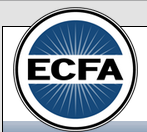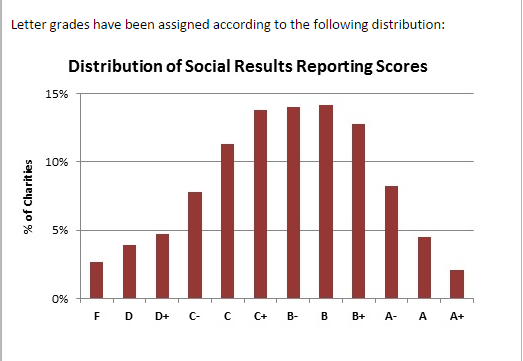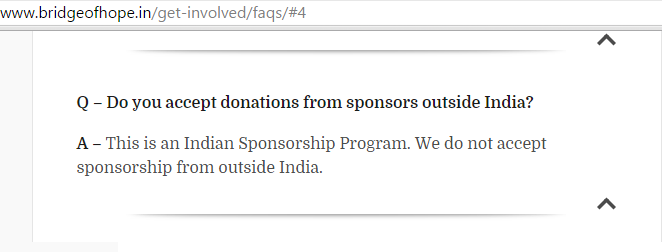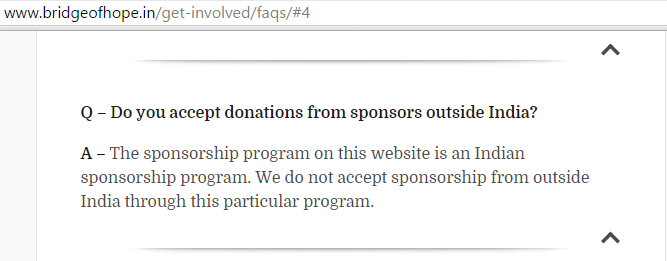Gospel for Asia has not answered any requests for information from me since May 7. GFA’s COO David Carroll told me my questions had become too frequent and numerous for them. Former donors have also asked many of the same questions I have asked. Many former donors have written to tell me that GFA representatives said the Evangelical Council for Financial Accountability advised GFA not to talk to me. I have seen evidence that GFA is internally telling staff that they refuse to answer questions from me at the advice of ECFA. That would not be surprising since ECFA has not responded to my questions for months.
If indeed ECFA is advising a member organization not to answer questions from me, what could be the reason? I will address a possible rationale in a moment. However, before I do, it is worth asking GFA publicly: why won’t you answer questions from donors? Former donor and Canadian pastor Bruce Morrison asked you many questions about discrepancies between U.S. records and Indian reports. You didn’t answer them. He and his church supported GFA for 20 years. Former donor and blogger Jimmy Humphrey supported GFA for years until recently. However, he told me you didn’t have any answers when he wanted to know why discrepancies exist between U.S. and Indian records. GFA sent him a form letter but no specific answers. I have heard similar stories from over a dozen former donors; some of them are posting at the Phoenix Preacher blog (see the comments section of this post).
Now about GFA’s silence in response to my questions:
The ECFA has a guideline called Transparency. Generally, it encourages organizations to be open about their dealings and specifies that ECFA member organizations must provide an audited financial statement upon request. GFA provided me with a copy of that statement when I asked back in April. This is the one area where compliance with ECFA guidelines has been advantageous. If the ECFA sticks by its own rules, the 2014 audited statement should be available soon because it was due to be filed with ECFA by July 31.
An aspect of the Transparency guideline gives a member organization a loophole for disclosure of the audited statement. If the organization deems that the request is part of a harassment campaign, then the group is exempt.
Harassment campaign. An organization may be exempted from the requirement to provide a copy of its financial statement if ECFA determines that the organization is the subject of a harassment campaign, the requester is part of that campaign, and compliance with requests that are part of that campaign are not in the public interest.
What constitutes harassment? A group of requests for an organization’s documents is indicative of a harassment campaign if the requests are part of a single, coordinated effort meant to disrupt the operations of the organization rather than to collect information about the organization.
In ECFA speak, this exemption applies to requests for audited financial statements and is based on IRS guidance about disclosure of a tax exempt organization’s 990 form. Since tax exempt groups are supposed to operate for the public benefit, public accountability is served by the government requiring non-profits to file a disclosure of income and expenses via the 990 form. However, GFA doesn’t file a 990 since the organization is considered a religious order by the IRS.
The ECFA spells this out to members in a document on their website which provides the relevant IRS guidance. Reviewing the IRS guidance, it becomes clear that ECFA has adapted IRS language to their guideline for disclosure of financial statements. Organizations are not required to provide 990 forms under the following circumstances:
§ 301.6104(d)–3 Tax-exempt organization subject to harassment campaign. (a) In general. If the district director for the key district in which the [26 CFR Ch. I (4–1–06 Edition)] organization’s principal office is located (or such other person as the Commissioner may designate) determines that the organization is the subject of a harassment campaign and compliance with the requests that are part of the harassment campaign would not be in the public interest, a tax-exempt organization is not required to fulfill a request for a copy (as otherwise required by § 301.6104(d)–1(a)) that it reasonably believes is part of the campaign.
What defines harassment?
(b) Harassment. A group of requests for an organization’s application for tax exemption or annual information returns is indicative of a harassment campaign if the requests are part of a single coordinated effort to disrupt the operations of a tax-exempt organization, rather than to collect information about the organization. Whether a group of requests constitutes such a harassment campaign depends on the relevant facts and circumstances. Facts and circumstances that indicate the organization is the subject of a harassment campaign include: a sudden increase in the number of requests; an extraordinary number of requests made through form letters or similarly worded correspondence; evidence of a purpose to deter significantly the organization’s employees or volunteers from pursuing the organization’s exempt purpose; requests that contain language hostile to the organization; direct evidence of bad faith by organizers of the purported harassment campaign; evidence that the organization has already provided the requested documents to a member of the purported harassing group; and a demonstration by the tax-exempt organization that it routinely provides copies of its documents upon request.
The IRS does not require non-profits to answer endless requests for the same form from coordinated sources. Doing so would take up too much time and resources and might be designed to disrupt the organization’s functioning. Even so, an organization cannot simply declare itself the subject of a harassment campaign and be free from the disclosure requirement. The organization has to request a determination by the IRS within 10 days of the organization’s leaders believing the organization to be the subject of a harassment campaign. According to the guidelines:
(d) Harassment determination procedure. A tax-exempt organization may apply for a determination that it is the subject of a harassment campaign and that compliance with requests that are part of the campaign would not be in the public interest by submitting a signed application to the district director for the key district where the organization’s principal office is located (or such other person as the Commissioner may designate).
To my knowledge, Gospel for Asia has not requested any such determination. You can read the rest of the procedure at this link (page 91).
 Clearly, none of this applies to media, public, or donor requests for information about financial dealings. Neither the IRS nor the ECFA guidelines advise or allow a public charity to ignore questions about public documents (audited statements, reports filed with the Canadian and Indian governments) already filed by the organization. If indeed the ECFA advised a Christian ministry to refuse to answer questions about finances from other Christians, then we have a whole new way of defining “evangelical financial accountability.”
Clearly, none of this applies to media, public, or donor requests for information about financial dealings. Neither the IRS nor the ECFA guidelines advise or allow a public charity to ignore questions about public documents (audited statements, reports filed with the Canadian and Indian governments) already filed by the organization. If indeed the ECFA advised a Christian ministry to refuse to answer questions about finances from other Christians, then we have a whole new way of defining “evangelical financial accountability.”
In the Public Interest
Let’s make this very clear. There is no harassment campaign. GFA did not try to work with me as one GFA representative said according to former donor Jimmy Humphrey. There is no reason in the public interest either here or in India for GFA to hide information or fail to answer questions about discrepancies in financial reports available freely to the public. There is no reason in the public interest for the ECFA to advise their member organizations not to talk to me or any other writer.
If anything is true, it is that GFA has operated in such a way as to thwart the public’s interest in knowing how tax exempt donations are spent. For instance, without brave former staffers disclosing the money smuggling to India, the public wouldn’t know that, GFA, a tax exempt religious order, conducted business in violation of its own standards and possibly U.S. Customs law. GFA began by telling staff that the procedure was legal and they cleared it with their auditors. Later, ECFA told Christian Today that GFA was seeking “legal counsel” to determine “remedial measures”:
It confirmed that GFA had sent cash with individuals travelling to India, but said that it had “stopped this practice entirely, and is working with legal counsel to determine appropriate remedial measures, if any”.
If the practice is legal and cleared with auditors Bland Garvey, why check with lawyers?
Maybe there are good answers for every question. If so, the public interest demands that GFA answer them. If not, then whose interest is served by silence?



